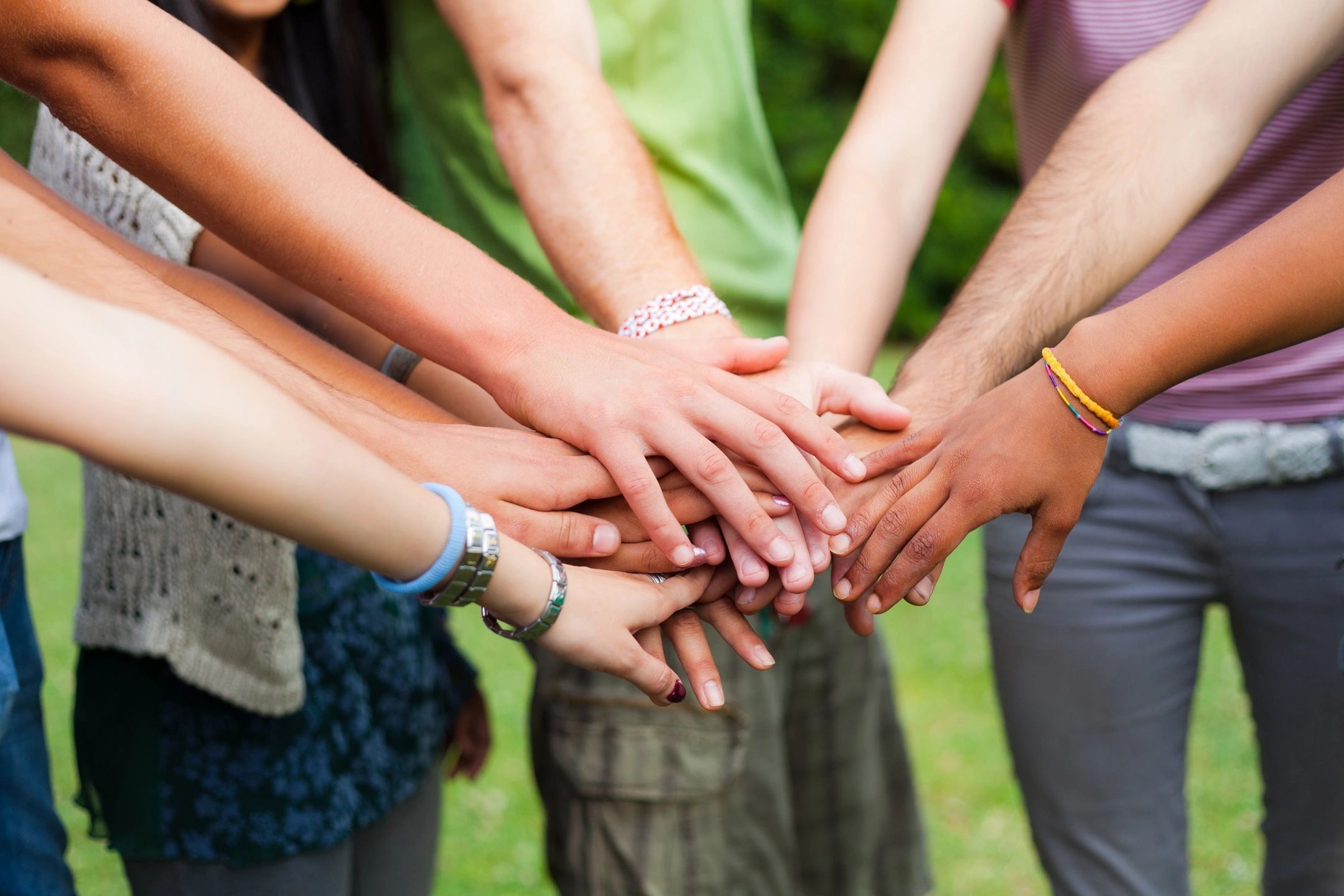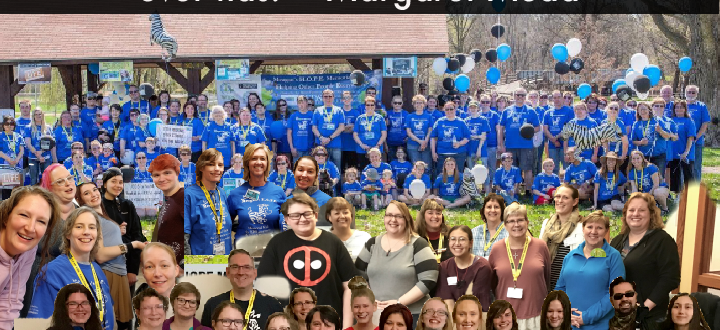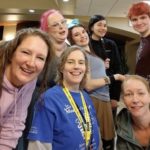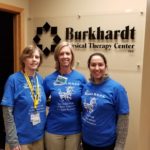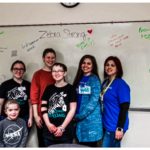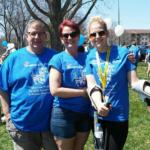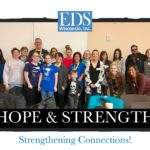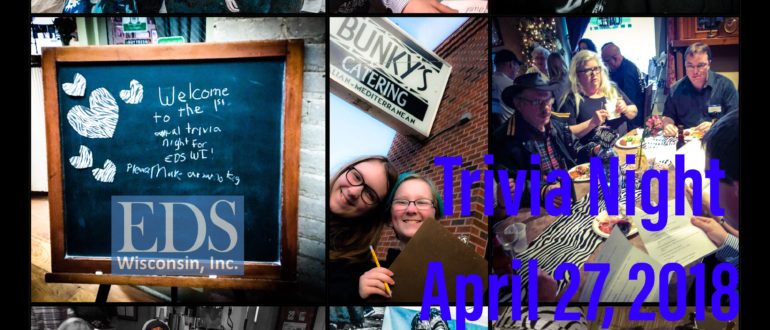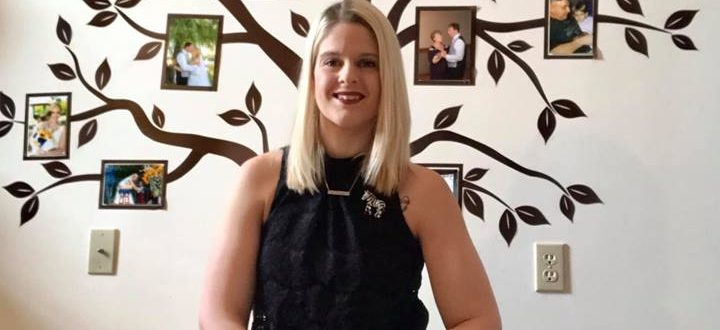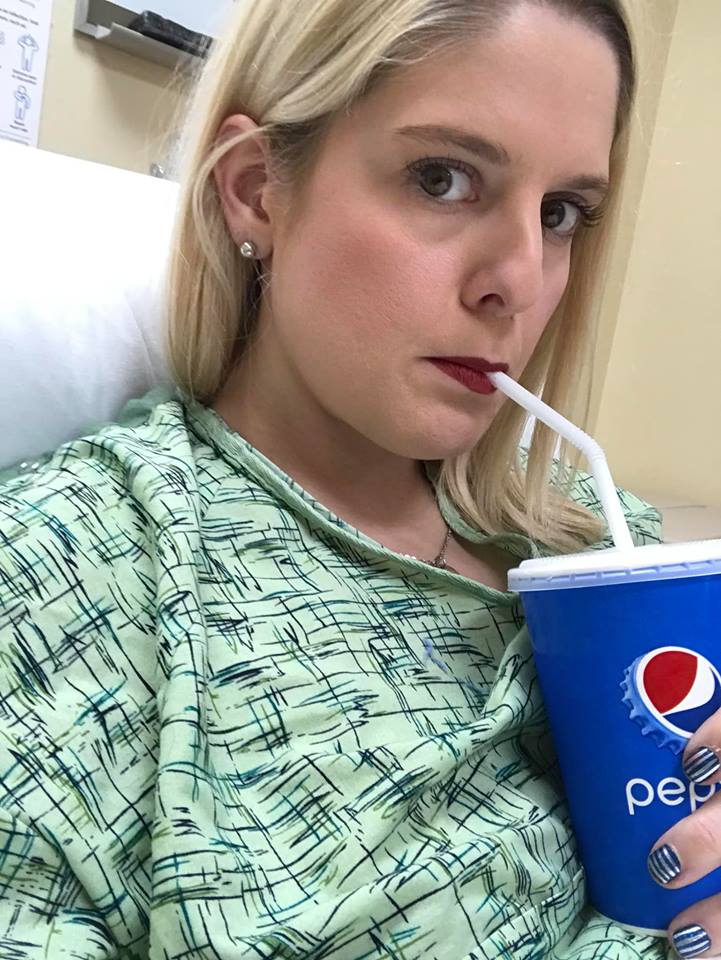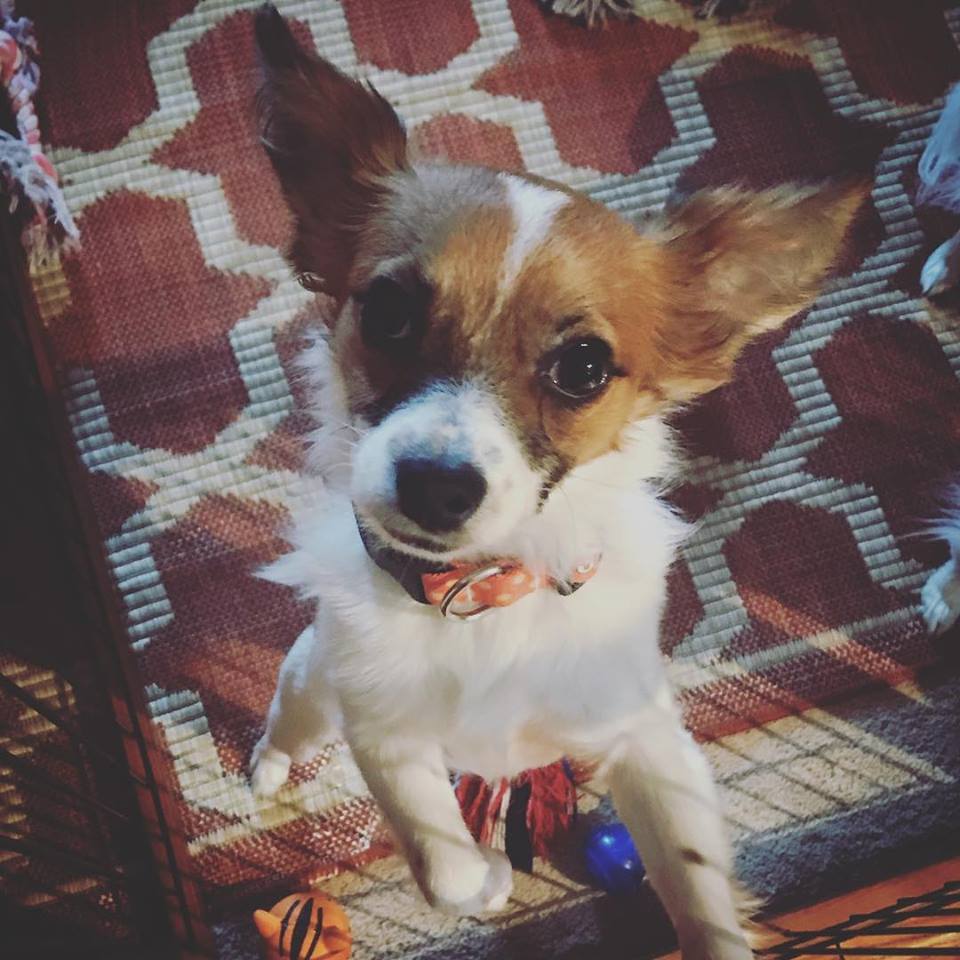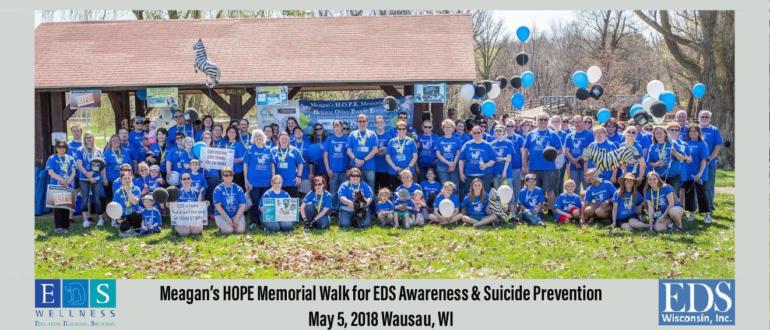Thank you for supporting EDS Wisconsin in whatever way you can–and there are many. Your support through monetary contributions, event attendance, social media presence, supporting patients through mentorship and listening, following our blog, and even just by having an awareness of our experience with EDS has allowed EDS Wisconsin to make an impact in 2018.
We wanted to let you know what EDS Wisconsin achieved as a result of YOUR generous contributions and unwavering support.
Of all the events that took place in 2018, we were most thrilled to hold the First Annual Meagan’s HOPE Memorial Walk for Suicide Prevention and EDS Awareness. This event had 186 participants and for an event in its first year, we could not believe we were so blessed to have this many people in attendance.
One of the most important tools and major hurdles for EDS patients is genetic testing. In 2018, we developed a relationship with Director Christina Zaleski and Dr. Juan Dong at PreventionGenetics. We were able to tour their state-of-the -art facility, and work with them to help make their new 45-gene panel available to more patients! Afterwards, we had the tools to help patients get the testing they need.
We hosted over FORTY support groups for patients with EDS and related conditions throughout Wisconsin – in Wausau, Milwaukee, Madison, LaCrosse, and Appleton/Green Bay. These groups and the support they provide continue to grow and help individuals in need. EDS Wisconsin also provides online support group meetings for those who live outside these areas or struggle to leave their homes. We have also connected kids and teens by having TWO support groups for them, something we are thankful we will be able to continue thanks to the ongoing support and financial contributions of our volunteers, sponsors and donors! These support groups are so important as the feedback we received showed an overwhelming majority felt they had ZERO support prior to attending our support group meetings.
EDS Wisconsin strives to provide education that address the specific needs of our community. Since our inception, we have hosted and/or participated in :
- 5 Tips for Managing Persistent Pain with Dr Linda S Bluestein, MD
- Managing Your Pain with Dr Linda S. Bluestein, MD
- Conquering Appointment Anxiety for Medically Complex Patients
- Frequently Asked Questions on Genetic Testing with PreventionGenetics
- Trivia Challenge 2018
- Assisted the Chicago Support Group with educating medical students at the University of Illinois – Chicago
- “My Personal Experience with Mast Cell Activation Syndrome” (available on YouTube)
- How to Make a Medical Binder with Backpack Health
- How to Make May EDS Awareness Month (available on YouTube).
Both Meagan’s Walk and the 2019 Trivia Challenge are right around the corner. These incredible fundraising events Strengthen Connections within our community, while providing the valuable financial resources and support we need to keep this organization on track to achieve its vision of a better Wisconsin, where EDS and related conditions are better understood, treated, and supported!
Your contributions have made it possible for us to provide support group print materials and supplies, support group leader training, supplemental grants for 2 children and 3 adults to attend conferences related to pain and EDS, have provided food to a family where both parents had surgery within a week of each other – the second one was due to an accident. We helped one patient pay for medication when it would have otherwise been impossible, improving quality of life for a member of our EDS family.
Looking forward, we are developing a support group leader training and education program because we believe it is so important to have quality, support groups in as many areas as possible, and that our support group leaders also need to receive the support they need.
We have begun working on a program to provide education about EDS and related conditions to medical professionals. This program will be piloted in the Fox Valley area in honor of our fallen member Lisa Klatkiewicz. Find out more about this initiative at Meagan’s Walk 2019
We will continue to regularly feature blog posts by Stephanie Vander Pas who shares not only about EDS itself, but about her experiences and events that connect us all. Stephanie’s candid writing provides readers with an insight into what it is like to be living with EDS, at the same time her words build strong, human connections, even with those who do not have EDS. Thank you Stephanie for sharing our thoughts and feelings, and for being our voice.
We are so excited to be working with over 70 amazing, dedicated, passionate and motivated volunteers who take valuable time out of their lives to help progress the mission and vision of EDS Wisconsin! When you see or talk to one of our volunteers, make sure you tell them thank you. Many of our volunteers also live with EDS which makes volunteering especially challenging sometimes. As a result, EDS Wisconsin is implementing a Buddy System to ensure that our Volunteers get the support that they need.
We have an incredible amount of gratitude to the medical professionals who have learned about EDS themselves and are educating both patients and peers as we move toward a future with improved quality of life for EDS patients--or maybe even a cure. These medical professionals are incredible and we are so thankful to know and work with them.
The mission of EDS Wisconsin is to provide support, resources and education to both patients AND medical providers. Our generous supporters and volunteers make all of this possible. We firmly believe our work will continue to make all goals achievable and contribute to the overall improvement of living with EDS and related conditions in Wisconsin.
From the very bottom of our hearts, thank you for your support of all we do as we work to improve peoples lives daily.
Tammy, Stephanie, & The Entire EDS Wisconsin Team

- ZEBRA KIDS
- LaCrosse Area
- Wausau Area Support Group Leaders
- SOUTH EASTERN WI
- ALLIED HEALTH
- EDS Kids and Teens
- Dr. Linda S. Bluestein, MD of Wisconsin Integrative Pain Specialists
- Hope & Strength
- Trivia Night 2018

